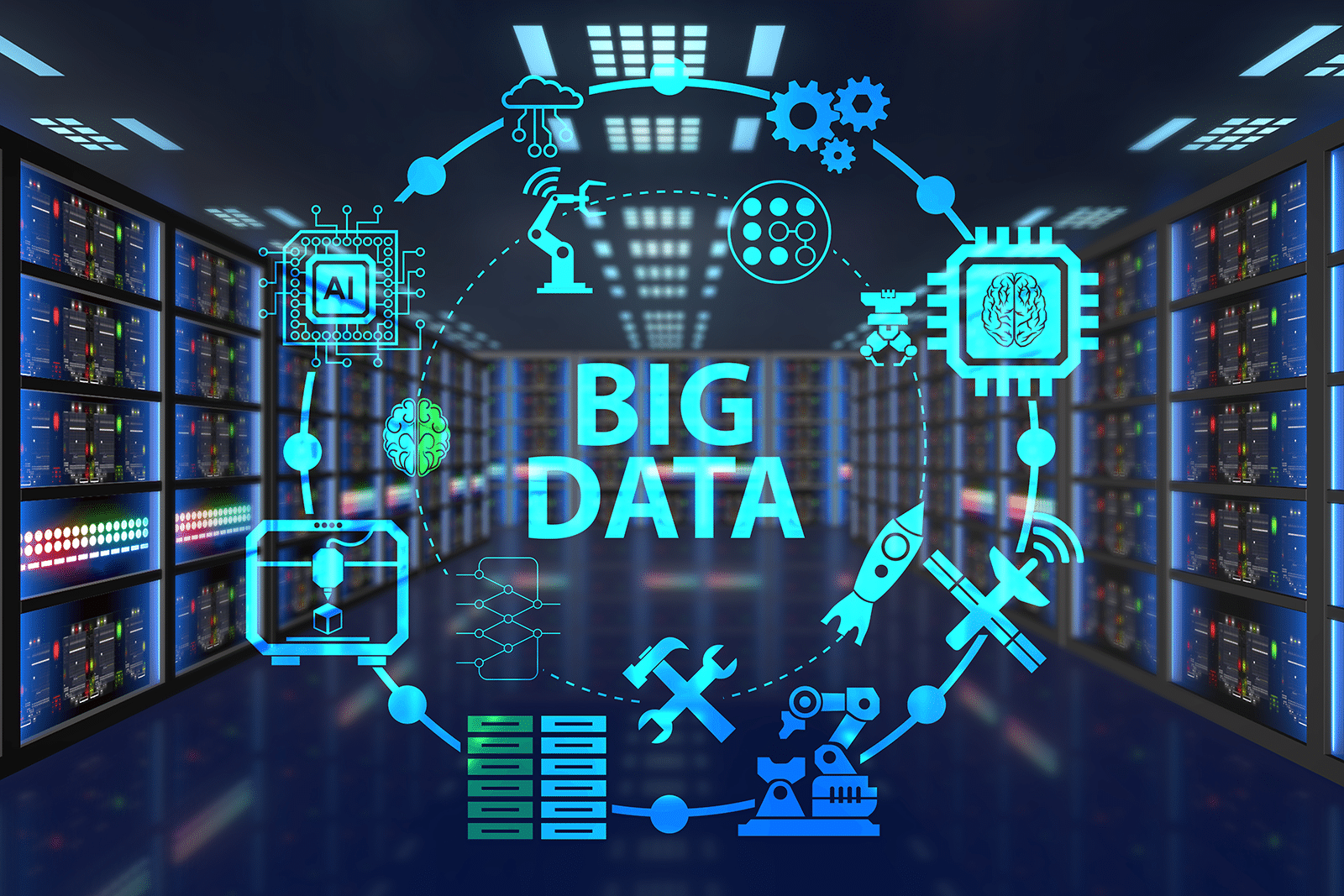Data Center In Kouvola: A Hub For Important Information
Thinking about where important digital information lives is a big deal today. A place like a data center in Kouvola, Finland, really shows how we keep our digital world running. These buildings are more than just big rooms; they are the core of our connected lives, storing and processing vast amounts of information that we use every day. So, in some respects, understanding what these places do helps us see the bigger picture of how our modern world works.
The need for secure and efficient places to hold digital assets grows all the time. As we create more and more information, from simple messages to complex research findings, we need robust homes for it. Kouvola, with its natural advantages, offers a compelling spot for such a critical piece of infrastructure. It's almost like a quiet powerhouse, supporting digital activity without much fuss.
This article will look at why a data center in Kouvola matters. We will talk about what makes such a location appealing and how it helps manage the kinds of information we see in big research projects. We will also touch on how these centers support important work, like that described in the Belmont Forum's efforts on data management, for instance. You know, like, the big ideas behind keeping global research data safe and usable.
- %D0%B4%D1%80%D1%8E %D0%BF%D1%80%D0%B8%D1%87%D0%B0%D1%80%D0%B4 %D0%B2%D0%B8%D0%BA%D0%B8%D0%BF%D0%B5%D0%B4%D0%B8%D1%8F
- Did Frank Lucas Work For Bumpy Johnson
Table of Contents
- Why Kouvola for Data Centers?
- Managing Important Information
- The Role of a Data Center in Today's World
- Frequently Asked Questions
Why Kouvola for Data Centers?
Choosing a location for a data center involves many thoughts. Kouvola, a city in Finland, has several features that make it a good spot. These features help ensure that digital information stays safe and accessible. It's really about finding a place that supports the long-term needs of information storage, you know?
Natural Advantages
One of the main draws for a data center in Kouvola is the natural environment. Finland has a cool climate for much of the year. This coolness helps keep the servers from getting too hot. Server machines create a lot of warmth when they run, so cooling them is a big expense for data centers. Using the natural cold air means less need for big, power-hungry cooling systems. This saves money and uses less energy, which is pretty good for the environment, actually.
Also, Finland has a stable geology. This means the ground is not prone to big earthquakes or other natural disasters that could harm a data center building. This stability is very important for keeping information safe. A data center, you know, needs a steady home, free from unexpected shakes or movements.
The availability of clean, reliable energy sources is another plus. Finland uses a lot of renewable energy, like hydropower and wind power. Powering a data center with clean energy helps reduce its carbon footprint. This is a growing concern for many companies and organizations that care about being responsible with our planet's resources. So, Kouvola, in a way, aligns with these modern values.
Connectivity and Infrastructure
A data center needs good connections to the rest of the world. Kouvola benefits from Finland's strong network infrastructure. There are fiber optic cables that carry information very quickly across long distances. This fast connection is vital for businesses and researchers who need to access their information without delay. It's pretty much a given that any serious data center needs top-tier connectivity, and Kouvola can offer that.
The city also has reliable power grids. An unbroken power supply is absolutely necessary for a data center. Even a short power cut can cause problems for the machines and the information they hold. Kouvola's stable infrastructure helps prevent such issues. This reliability means that operations can continue without interruption, which is something every user of digital services relies on, whether they know it or not.
Furthermore, the general infrastructure around Kouvola, like roads and access points, helps with bringing in equipment and keeping the center running. Having a good support system around the physical building is just as important as what goes on inside it. It's about the whole picture, you know, not just one piece.
Managing Important Information
A data center in Kouvola, or any data center really, serves as a digital vault and processing hub. It handles many types of information, from everyday business records to very complex research data. The way this information is managed is critical for its usefulness and safety. It's more or less about making sure the right information is there when you need it, and that it's protected.
Supporting Research and Environmental Data
Think about the kind of information that comes from big research projects. For instance, the Belmont Forum, as a matter of fact, works with international research groups focused on environmental change. This involves collecting vast amounts of environmental data. This could be information about land changes over 40 years of Earth observation, or details about different types of samples and physical collections. A data center provides the space and power needed to store and work with these huge datasets. It's where the raw information can be turned into valuable insights.
Such a center can support the analysis and modeling of this environmental information. Researchers need powerful computers to make sense of big data. They might use specialized software for visualization or for developing new ways to understand the environment. A data center in Kouvola could be a key part of this process, offering the computing muscle required for such demanding tasks. It's like having a very big brain for all that information, you know?
The work often involves interdisciplinary data software development. This means bringing together information from different fields to solve big problems. A data center provides the stable environment for teams to develop and run these complex software tools. It’s where the programming, the environmental data, and the visualization tools all come together. This helps accelerate the delivery of knowledge needed for understanding and solving sustainability challenges, which is pretty important for everyone.
Data Management Plans and Repositories
Managing research information is not just about storing it; it's about organizing it well. Organizations like the Belmont Forum require data management plans (DMPs). These plans describe the entire life cycle of information, from how it's collected to how it's shared and preserved. A data center acts as the physical home for the digital repositories where this information is kept. It's where the plans become a reality, basically.
A full data and digital outputs management plan for an awarded project is a living document. It describes the data management life cycle for all the information and other materials, like software or curriculum materials. A data center provides the secure, accessible platform for these actively updated documents and the information they describe. This ensures that the information remains usable over time, which is really important for long-term research efforts.
The underlying rationale for these plans is often about open data. In 2015, the Belmont Forum adopted an open data policy and principles. This means making research information available for others to use and build upon. A data center helps make this possible by providing the infrastructure for publishing and sharing information broadly. It's how those principles get put into practice, you know, allowing for wider access to valuable information.
Information organization, including DMPs and repositories, relies on good team skills. People with expertise in data science, object-oriented programming, and data organization work to make sure information is handled correctly. A data center provides the physical space and technical environment where these teams can do their work effectively. It's a place where human expertise meets powerful technology to manage vast amounts of information, which is quite a feat.
The Role of a Data Center in Today's World
A data center, like one that might be found in Kouvola, plays a very important role in our modern lives. It’s where the internet lives, in a way. Every time you send an email, stream a video, or look up something online, that information is moving through and being stored in data centers somewhere. They are the unseen engines of our digital economy and our global communication. It's a fundamental part of how we operate today.
These centers are also crucial for business continuity. Companies rely on them to keep their operations running smoothly, even if something goes wrong at their main offices. Having information stored securely off-site means they can recover quickly from problems. This resilience is a huge benefit for any organization that depends on its digital information. It’s about being prepared, right?
Moreover, the focus on sustainability for data centers is growing. Locations like Kouvola, which offer natural cooling and access to clean energy, are becoming more appealing. This trend shows a wider commitment to reducing the environmental impact of our digital infrastructure. It's a step towards a more responsible approach to technology, which is something many people care about very much these days.
So, a data center in Kouvola represents a significant piece of modern infrastructure. It supports everything from everyday digital tasks to complex scientific research, like the work on Earth observation data that spans 40 years. It helps keep information safe, accessible, and ready for use by researchers and businesses around the world. It’s a quiet but powerful contributor to our shared knowledge and progress, basically. To learn more about data management on our site, and check out this page for more details.
Frequently Asked Questions
Why choose Kouvola for a data center?
Kouvola offers several good reasons for a data center. Its cool climate helps with natural cooling for the machines, which saves energy. The area also has a stable ground, reducing risks from natural events. Plus, Finland provides good network connections and access to clean energy sources. It's a pretty practical choice, you know, for keeping things running smoothly.
What kind of data does a data center manage?
A data center can manage a very wide range of information. This includes business records, personal files, and even large scientific datasets. For example, it can store environmental data, like information from Earth observation satellites collected over many years. It also holds software, curriculum materials, and other digital outputs from research projects. Basically, anything digital that needs a safe home can be there, actually.
How do data centers help research?
Data centers provide the computing power and storage needed for big research projects. They help manage vast amounts of information, like big data from environmental studies. Researchers use these centers to analyze information, run complex models, and develop new software tools. This support helps accelerate the understanding of important global issues, like those related to sustainability. It's where the heavy lifting of information processing happens, in a way.

What Is Data? Learn the Basics and Importance of Data

With More Data Available Than Ever, Are Companies Making Smarter

Analisi dei Big Data e fattura elettronica: i vantaggi per il business